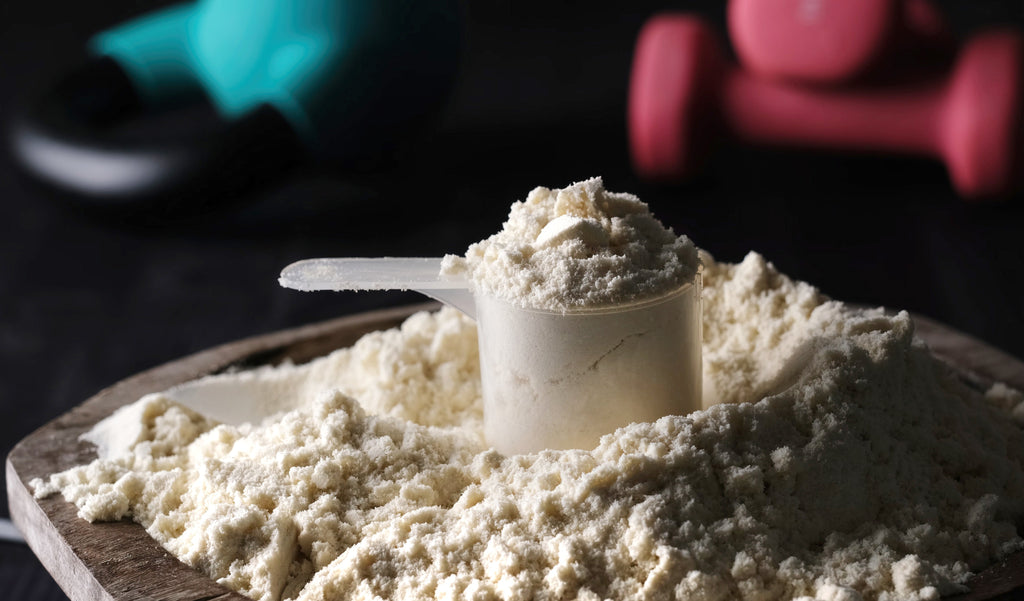
Is Whey Protein Isolate Good For You
Whey protein isolate has become one of the most extensively researched and widely utilized protein supplements in sports nutrition, clinical diets, and general wellness routines. Its rapid rise in popularity is attributable to its impressive amino acid composition, minimal fat and carbohydrate content, rapid digestibility, and broad application across age groups and health goals. But the question remains: is whey protein isolate good for you?
In most cases, the answer is yes. Whey protein isolate offers a high-purity protein source that supports lean muscle maintenance, physical recovery, immune resilience, and healthy weight management. It provides essential amino acids in optimal ratios, is easy to digest, and is typically well tolerated by those with lactose sensitivity. However, the context of use, individual health conditions, and ingredient sourcing significantly influence its effectiveness.

What Is Whey Protein Isolate?
Whey protein isolate is a concentrated and purified form of whey protein, extracted from the liquid whey that remains after milk curdles during cheese production. It undergoes extensive filtration processes such as cross-flow microfiltration or ion exchange, which remove a significant proportion of lactose, fats, and other non-protein components. This results in a product that is typically composed of more than 90% protein by weight.
Compared to whey protein concentrate, which retains more fats and carbohydrates, isolate is leaner and often more tolerable for individuals with digestive sensitivities. This level of purity makes whey protein isolate particularly attractive to athletes, dieters, and those seeking efficient protein delivery without excess calories.
Refer to NIH’s PubChem database for an overview of whey protein’s biochemical structure and applications.
Muscle Recovery and Lean Mass Preservation
One of the most scientifically supported uses of whey protein isolate is in the enhancement of muscle protein synthesis (MPS). Its high leucine content makes it especially effective at stimulating anabolic activity in muscle tissue. Leucine acts as a key activator of the mTOR pathway, which regulates growth and protein metabolism.
Post-exercise consumption of whey protein isolate has been shown to accelerate tissue repair, reduce markers of muscle damage, and contribute to positive changes in muscle size and strength. For example, a 2018 review in the Journal of the International Society of Sports Nutrition concluded that whey supplementation post-exercise can significantly enhance gains in both strength and hypertrophy in resistance-trained adults.
These benefits extend beyond athletic performance. Whey isolate can also help preserve lean muscle mass in older adults, individuals recovering from illness, and those in caloric deficits or catabolic states.

Role in Weight Management and Satiety
Whey protein isolate supports weight management through several mechanisms. First, it is highly satiating, helping to curb hunger and reduce caloric intake during subsequent meals. Second, it supports fat loss by preserving lean muscle mass, which plays a vital role in maintaining resting metabolic rate.
Additionally, protein has a higher thermic effect of food (TEF) than carbohydrates or fats, meaning more energy is expended during digestion. A randomized controlled trial published in Obesity journal found that individuals consuming a high-protein diet experienced greater fat loss and improved satiety levels compared to those on lower-protein regimens.
You can explore more about protein’s impact on appetite via Harvard T.H. Chan School of Public Health.

Bioavailability and Amino Acid Profile
Whey protein isolate is considered a gold-standard protein source due to its complete amino acid profile and rapid digestibility. It is rich in essential amino acids (EAAs), particularly the BCAAs—leucine, isoleucine, and valine—which are critical for muscle recovery and energy metabolism.
The biological value (BV) and digestible indispensable amino acid score (DIAAS) for whey isolate are among the highest of all dietary proteins, meaning that the body can efficiently absorb and utilize its amino acids. These qualities make it especially useful not just for athletes, but for those in clinical recovery, post-surgical nutrition, and aging populations.
Lactose Content and Dietary Tolerance
One of the main advantages of whey protein isolate over other dairy-based proteins is its extremely low lactose content. While whey concentrate contains roughly 3–4 grams of lactose per serving, whey isolate typically contains less than 1 gram—and in many cases, it is virtually lactose-free.
This makes it accessible to individuals with mild lactose intolerance who may otherwise experience bloating, gas, or digestive discomfort from dairy. However, it is not suitable for those with severe dairy allergies or those adhering to vegan diets. Individuals should check labels carefully for blend formulations that may include whey concentrate or non-isolate ingredients.

Immune Support and Antioxidant Activity
Whey protein isolate is not solely beneficial for muscle recovery. It also contains bioactive peptides such as lactoferrin, beta-lactoglobulin, alpha-lactalbumin, and immunoglobulins, which can play roles in supporting immune response. These compounds contribute to antimicrobial defense, modulation of gut microbiota, and immune system regulation.
In particular, whey isolate aids in the production of glutathione, a powerful antioxidant that protects cells from oxidative stress. Cysteine, an amino acid abundant in whey, is a rate-limiting precursor for glutathione synthesis. For individuals under physiological stress, illness, or caloric restriction, this antioxidant support can be beneficial.
A comprehensive review on these benefits can be found in Nutrition & Metabolism via PubMed Central.

Versatility and Integration into Diet
Whey protein isolate offers a convenient and adaptable way to meet daily protein needs. It can be consumed as a shake, mixed into smoothies, stirred into oatmeal or yogurt, or added to recipes such as protein pancakes or baked goods. It is available in a wide range of flavors, from unflavored to dessert-style options.
Its ease of use, combined with its rapid absorption rate, makes whey isolate particularly beneficial for people with busy lifestyles or those who struggle to meet protein targets through food alone. It is a functional choice for both pre- and post-workout meals, as well as snack replacements.
Considerations and Limitations
Despite its broad benefits, whey protein isolate may not be suitable for all individuals. Those with confirmed dairy protein allergies should avoid it altogether, as even trace levels of whey can trigger immune responses. Similarly, individuals on strict plant-based diets must look to vegan protein alternatives.
Moreover, not all whey isolates are manufactured equally. Some products may contain artificial sweeteners, unnecessary fillers, or inferior protein blends. Consumers should look for third-party testing, transparent labeling, and clean sourcing to ensure the product’s integrity.

Comparing Protein Sources
When evaluating whey isolate against other protein sources:
- Whey Concentrate: More affordable but contains more lactose and fat
- Casein: Slow-digesting and better suited for nighttime recovery
- Soy Protein: Plant-based but may contain allergens and lower levels of some amino acids
- Pea and Rice Protein: Good vegan alternatives but lower in methionine or lysine, respectively
Whey isolate offers unmatched efficiency and purity, particularly when fast digestion and high bioavailability are priorities.
Conclusion: Is Whey Protein Isolate Good For You?
Whey protein isolate is a scientifically validated, highly effective protein source for individuals looking to support muscle recovery, maintain lean mass, enhance satiety, and improve immune function. Its superior amino acid profile, low lactose content, and fast absorption rate make it ideal for a wide variety of nutritional needs.
When sourced from reputable manufacturers and used appropriately within a balanced diet, whey protein isolate can be an indispensable tool in both performance-based and general health strategies. Whether you’re training for strength, managing your weight, or simply aiming to optimize your nutrition, whey protein isolate is a valuable and accessible option. Check out our most popular isolate, from Nutribio.
To compare quality and ingredient transparency across products, visit Labdoor’s protein supplement rankings for unbiased reviews.

